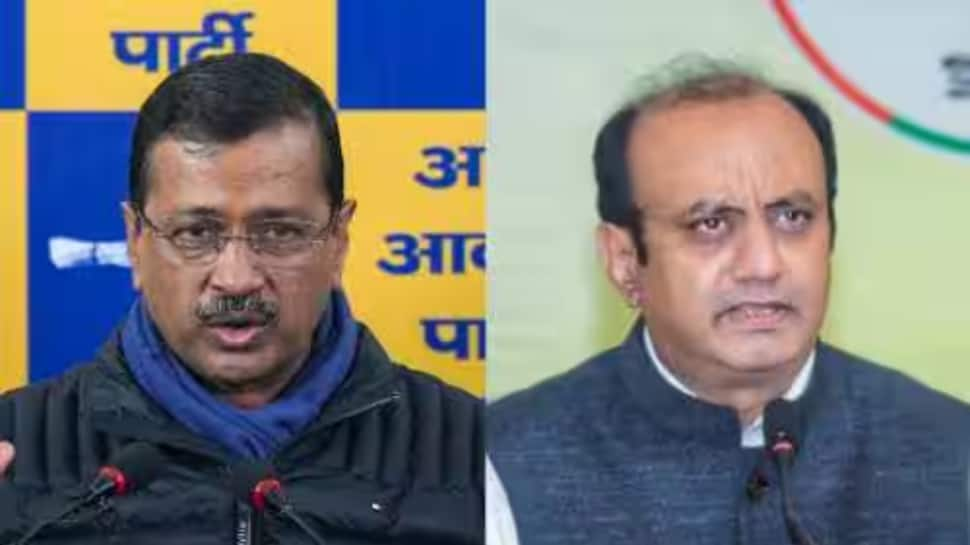 |
|
The recent spate of hoax bomb threats targeting over 400 schools in Delhi has ignited a fierce political battle between the ruling Aam Aadmi Party (AAP) and the opposition Bharatiya Janata Party (BJP) just weeks before the Delhi Assembly elections. The Delhi Police investigation has revealed that a Class 12 student is responsible for the threats, and the focus has shifted to the alleged connection between the student's parents and an NGO that reportedly supports a political party. While the police haven't explicitly named the party, the BJP has aggressively linked the AAP to the incident, causing a significant escalation of tensions. This incident showcases the delicate balance between legitimate security concerns and the potential for political manipulation during a crucial electoral period.
The BJP's accusations have been vehement and direct. Sudhanshu Trivedi, a BJP spokesperson, pointed to the NGO's alleged past involvement in activities deemed inimical to national security, and implied a direct ideological link between the NGO, the accused student's family, and the AAP. Trivedi's strong statements, including a pointed questioning of Arvind Kejriwal's party's involvement, clearly aim to damage the AAP's reputation ahead of the elections. The BJP’s strategy seems to be to paint the AAP as having connections with individuals and groups that could threaten national security, a tactic designed to sway voters wary of such associations. The aggressive tone and direct accusations leave little room for ambiguity, underscoring the high stakes of this political clash.
The AAP, however, has vehemently rejected the BJP’s allegations, accusing them of engaging in petty politics and attempting to fabricate a story to gain political advantage. They argue that the Delhi Police has presented no concrete evidence linking them to the incident and that the BJP’s accusations are baseless and irresponsible, particularly given the sensitive nature of the hoax bomb threats. AAP MP Sanjay Singh further criticized the BJP's actions, highlighting the apparent contradiction between their alarm over the incident and their perceived inaction concerning other security issues in Delhi under the BJP-led central government's jurisdiction. The counter-accusations from the AAP reveal a deep mistrust between the two parties, highlighting the highly polarized political environment in Delhi. The contrasting narratives – the BJP’s attempt to connect the AAP to a security threat and the AAP's dismissal of the claims as political maneuvering – clearly reflect the intensified political climate preceding the elections.
The Delhi Police's involvement in this controversy is also crucial. While the police have identified the student responsible for the hoax bomb threats and highlighted the NGO's support for a political party, they have refrained from directly naming the AAP. This cautious approach suggests the police may be wary of being drawn into the political fray and may not possess definitive evidence to directly connect the AAP to the perpetrators. The information released by the police regarding the NGO's support for a political party and its past advocacy, including its position regarding Afzal Guru, could be interpreted in various ways, potentially leading to different conclusions depending on the political lens applied. The police's statement regarding the NGO's 'longstanding association and deep connections with a political party,' while carefully worded, leaves room for political interpretation, and adds fuel to the ongoing political firestorm.
The timing of the accusations is equally significant. The revelation and subsequent political accusations are occurring just weeks before the Delhi Assembly elections, suggesting that the issue is being exploited for political gain. Both parties are employing classic election tactics: The BJP uses the alleged link to attempt to discredit the AAP, while the AAP dismisses the allegations as a desperate attempt to sway voters. This incident exemplifies how easily serious issues, even those concerning school children's safety, can be politicized in an election year, ultimately hindering meaningful discussions and solutions. The intense political maneuvering overshadows the genuine concerns about the safety and well-being of Delhi's students, raising concerns about the prioritization of political advantage over public safety.
The overarching question remains whether the investigation will reveal further evidence linking the AAP to the incident or if the BJP’s accusations will be dismissed as politically motivated. The Delhi public, facing the impact of this incident and witnessing the ensuing political brawl, will ultimately decide whether the BJP's strategy will succeed in influencing their voting decisions. The outcome of the elections will provide a crucial indicator of how successful this political tactic has proven to be. The case raises serious questions regarding the role of NGOs in politics, the responsibilities of law enforcement agencies in maintaining political neutrality during sensitive investigations, and the ethics of political parties in manipulating serious incidents to achieve electoral gains.
Source: Hoax Bomb Threats Spark Political Row As BJP Links AAP To Case, Party Denies Claims
